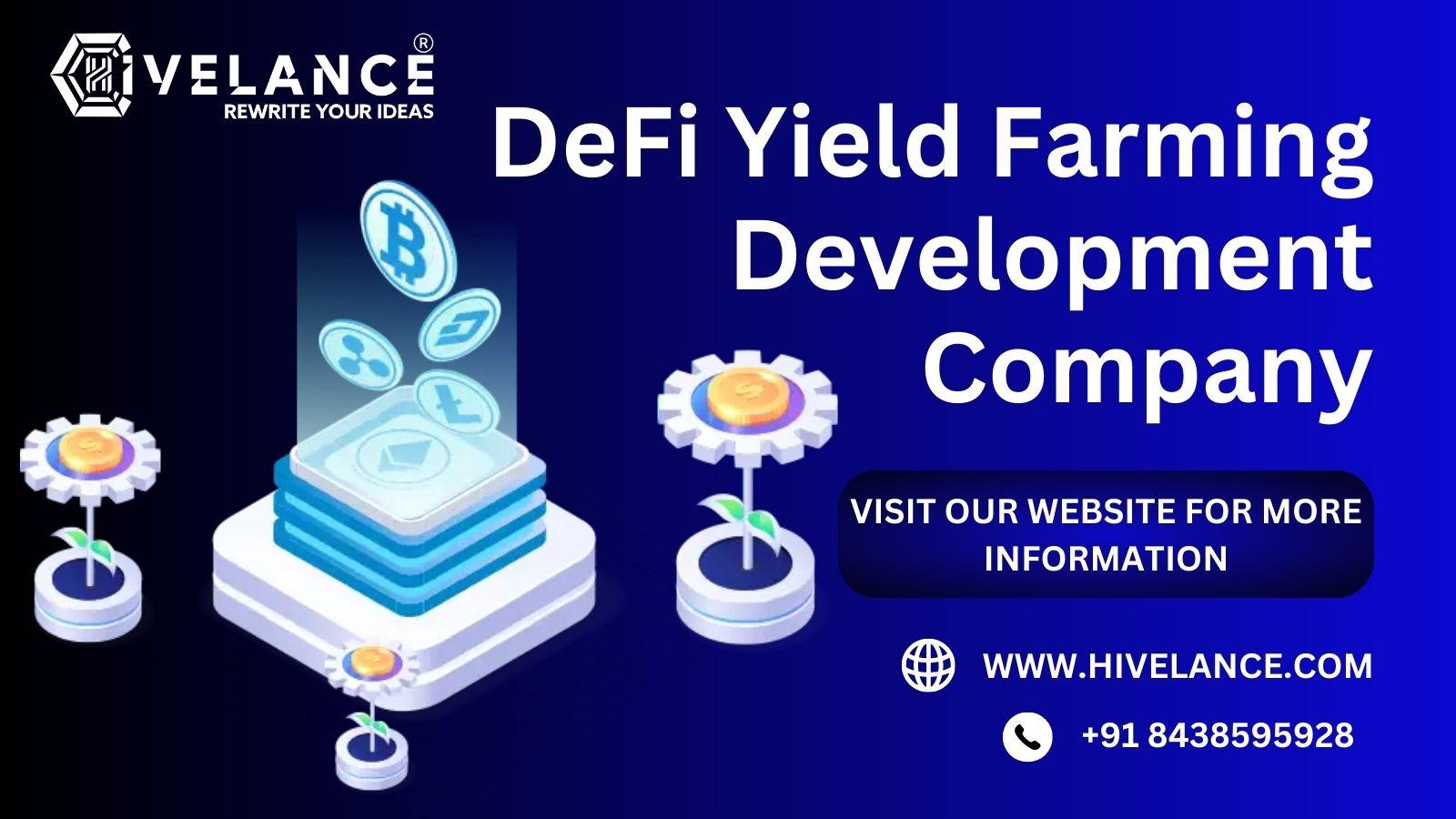DeFi Yield Farming has emerged as a well-known trend in the cryptocurrency world, capturing the attention of enthusiasts and attracting an increasing number of new users to the Decentralized Finance (DeFi) sector. Considered the latest hype machine in the crypto-market, DeFi has swiftly established its positive presence within today's financial ecosystem. It stands as a testament to the evolving landscape of finance, seamlessly integrating with cryptocurrencies and blockchain technology. DeFi, a rapidly developing industry, keeps advancing in tackling difficult problems faced by the financial sector while also reviving the entire financial infrastructure.
What Is DeFi Yield Farming?
In the world of DeFi projects, yield farming, often referred to as liquidity mining, has become incredibly popular. It entails users depositing tokens and providing liquidity to various protocols, in exchange for attractive incentives. This emerging method has become a growing avenue for individuals to earn rewards from their cryptocurrency capital investments. Liquidity providers play a crucial role by retaining funds in liquidity pools, allowing them to earn rewards for their contributions to the exchange interface. This innovative approach not only encourages active participation within the DeFi ecosystem but also incentivizes users to contribute to the overall liquidity and stability of the protocols they engage with.
Features of DeFi Yield Farming
Provide Liquidity: Users deposit their cryptocurrencies into liquidity pools, which are smart contract-based pools that facilitate trading on decentralized exchanges (DEXs). By providing liquidity, users enable others to trade and earn fees.
Earn Yield: By staking their deposited tokens in liquidity pools, users can earn rewards in the form of additional tokens. These rewards can come from various sources, such as transaction fees, yield generated by lending platforms, or newly minted tokens.
Token Staking: In addition to providing liquidity, users may need to stake specific tokens to access certain yield farming opportunities. Staking involves locking up tokens in a smart contract for a specific period to participate in yield farming and receive rewards.
Impermanent Loss: When providing liquidity to a trading pair, users are exposed to the risk of impermanent loss. This occurs when the relative value of the deposited tokens changes compared to simply holding them. Yield farmers should consider this risk when participating in liquidity provision.
Strategy Optimization: Yield farmers often employ various strategies to maximize their returns. This may involve monitoring different pools, switching between protocols, and analyzing the potential returns and risks associated with each opportunity.
Risks and Considerations: It's important to understand the risks involved in DeFi Yield Farming, such as smart contract vulnerabilities, market volatility, and potential token value fluctuations. Users should research and assess the reputation and security of the protocols they engage with.
Choose The Leading DeFi Yield Farming Development Company
Hivelance, a well-known DeFi development company, is at the forefront of offering clients all over the world integrated DeFi Yield Farming development services. With a team of industry experts, Hivelance excels in providing exceptional features and functionalities, ensuring the delivery of highly innovative and immutable DeFi solutions. Whether you aspire to launch your own DeFi Yield Farming platform or seek expert guidance, their proficient blockchain developers are equipped to offer top-notch services. Hivelance's commitment to excellence and expertise in the DeFi space positions them as a reliable partner in realizing your DeFi Yield Farming aspirations.
